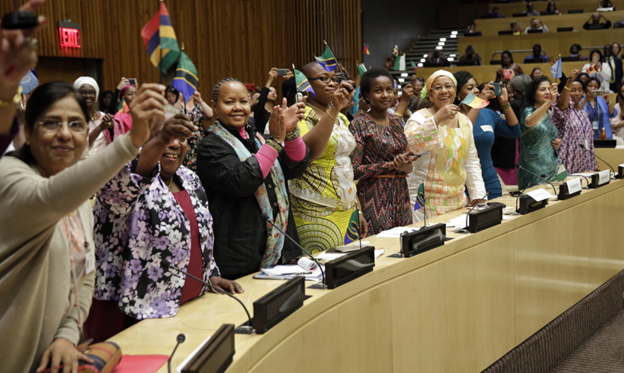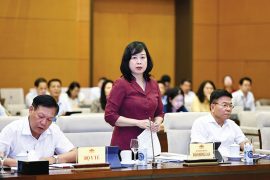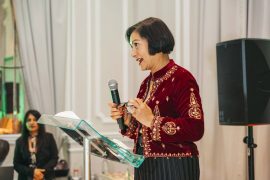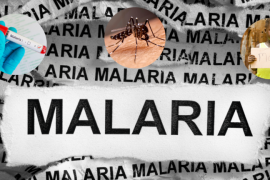Unfortunately, in all their diversity, African women are still frequently viewed as “mere” voters who are “unsuitable” to lead key political processes regarding political participation. African politics has been portrayed as a male-dominated and male-oriented endeavour, even though women play a crucial role in campaign agenda-setting and mass mobilisation.
“As an African, I believe it is very important for us to look at the African Union’s Agenda 2063 and have shared values of inclusive governance fall into place,” the current IDEA and West Asia Regional Director, Dr Tobe Sharamo, stated. This conviction is the driving force behind the Women in Political Participation in Africa (WPP) project, which International IDEA and the Embassy of Sweden in Addis Ababa support. Women in Political Participation allows us to implement strategic partnerships in Africa. The project has six partner organisations: Gender Links, the Universite Cheikh Anta Diop’s Gender Laboratory (IFAN), the Padare/Enkundleni Men’s Forum on Gender, and the African Women’s Development and Communication Network (FEMNET) are a few others.
The novel project is currently in its second phase of implementation. Its strategy aims to change the course of political leadership and governance in Botswana, Côte d’Ivoire, the Democratic Republic of the Congo, Eswatini, Kenya, Senegal, Tanzania, and Zimbabwe by expanding to regional and global policy spaces to improve gender equality and women’s political participation in accordance with existing frameworks like the Maputo Protocol and the Sustainable Development Goals of the United Nations.
FEMNET’s WPP Coordinator and expert in transformational leadership, Dorothy Otieno, remarked, “We must institute a deliberate effort in amplifying women’s voices in the political processes, push for gender-responsive policies, and hold governments accountable on legal frameworks on gender equality” to guarantee women’s meaningful participation and equal opportunities in decision-making.
Emebet Regassa, the Regional Gender Advisor at the Swedish Embassy in Addis Ababa, stated, “We are committed to ensuring that African women are empowered to be transformative agents of positive change in our political arena.”
The Executive Director of Gender Links, Rama Kubi, stated in the same tone, “We are intentional about strengthening the capacity of African women to engage in politics.” Ms Kubi insisted that African women should not be restricted or undermined in their ability to contribute positively to democratic processes.
In retrospect, in line with her sentiments, the only action that will cause African governments to be explicit about affirmative action interventions, particularly those that are implemented in political institutions and processes to encourage women’s participation, is intentionality.
Africa needs to make women’s leadership a standard, given that we are just seven years from reviewing the Sustainable Development Goals (SDGs). Even though it has been widely argued and empirically demonstrated that gender equality is progressing, the current situation indicates that obstacles require attention and revision.
Mildred Ngesa, a well-known Pan-African media and communications specialist, stated in her address to the gathering, “When we first decry the persisting litany of patriarchal manels sitting at the African Union, women’s participation in African politics will start making sense.”
“Women deserve to occupy those top seats just as much as the men!” she insisted.
Based on this assertion, African women’s political participation still needs to catch up to schedule. Needs to catch up with the Africa Barometer 2021; only 24% of African women participate in politics, with Nigeria coming in last with 6%.
More than twenty African nations addressed this major issue this year, namely:
Benin, Chad, Comoros, Djibouti, Egypt, Eswatini, Gabon, Ghana, Guinea, Guinea-Bissau, Madagascar, Liberia, Libya, Madagascar, Mali, Mozambique, Nigeria, Sierra Leone, Somali, South Sudan, Togo, and Zimbabwe. Some of these nations are preparing for elections and seeking to implement what has been discussed.
To correct this anomaly, we should first normalise inclusion to accommodate all African women and girls in their diversity. Women must have equal opportunities in the election and decision-making processes if they are to participate fully in politics.





Comments are closed.